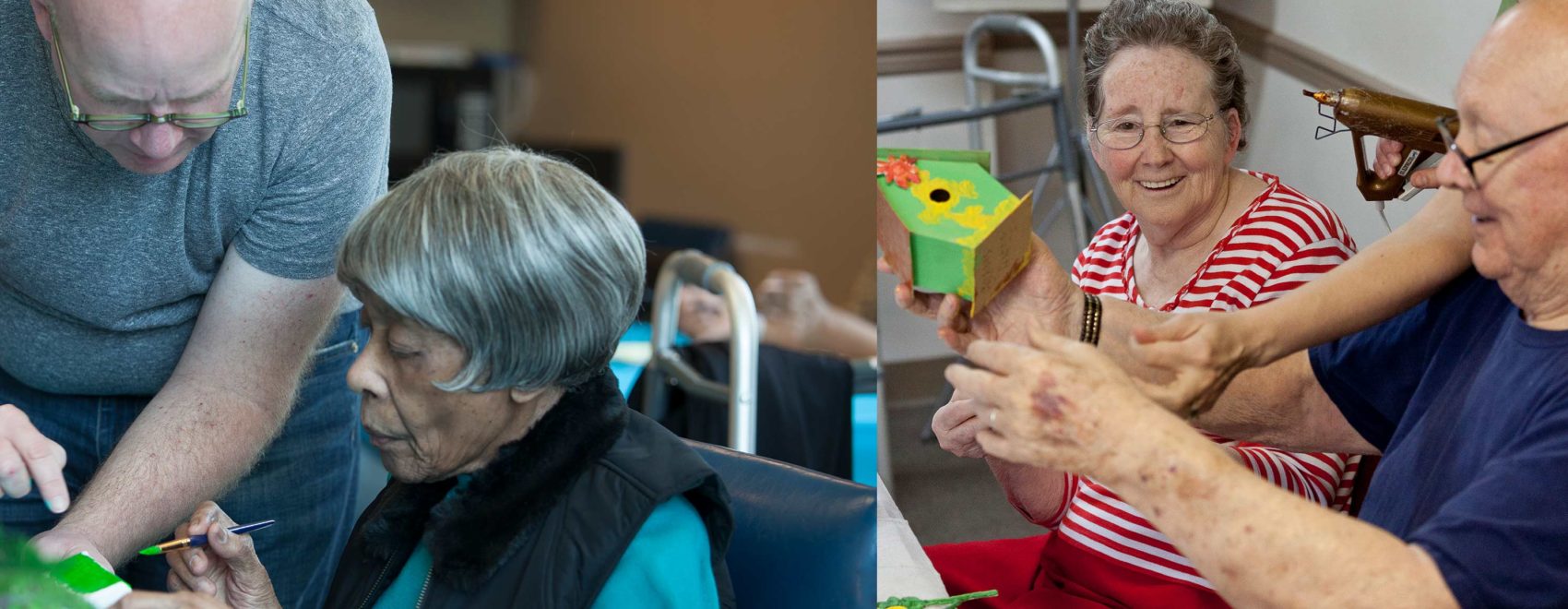A family’s first line of defense when faced with a diagnosis of Alzheimer’s is Education. It is important to learn about the disease, what to expect, how to communicate with your loved one, and available community resources.
Here are some helpful resources:
Caregiver Support Groups
Some of the best education comes from joining a group of people with common experiences or concerns who provide each other with encouragement, comfort, and advice. Alzheimer’s of Central Alabama offers a caregiver support group on Zoom at 11 am every Tuesday. For more information, please contact our Executive Director, Miller Piggott at 205-871-7970. For a list of other group meetings in our area please click here.
Compassionate Communication
Dos, don’ts, and general guidelines for treating people with Alzheimer’s with appropriate care and consideration.
Learn about how best to act with a person suffering from this difficult debilitation here.
Understanding Alzheimer’s
As caregivers, we often use intuition to help us decide what to do. No one ever gave us lessons on how to relate to someone with memory loss. Unfortunately, dealing with Alzheimer’s disease and other dementias is counterintuitive; often the right thing to do is exactly opposite that which seems like the right thing to do. Find practical tips here.
Is it Alzheimer’s?
Guidelines for knowing whether to be concerned about the possibility of Alzheimer’s Disease in a loved one.
Learn how to spot warning signs and how to react to what you see here.
Cognitive Dynamics’ Mission
Created by ACA board member Dr. Danny Potts, the mission of Cognitive Dynamics is to improve the quality of life of persons with cognitive disorders (such as Alzheimer’s disease) and their caregivers through education, research, and support of innovative care models which promote human dignity, especially therapies employing the expressive arts and storytelling.
The ABCs of ADLs
Activities of Daily Living, or ADLs, can be parts of the day that might seem inconsequential, but for someone with Alzheimer’s, they require special attention.
Learn how to assist a person with Alzheimer’s with his or her daily needs here.
Understand and Control Wandering
Alzheimer’s causes disorientation, which can lead to wandering.
Learn how to curb or prevent wandering, as well as ensure a safe return if your loved one is lost here.
Weekly Dementia Calendar
Weekly email information with dates and educational resources. Visit here.
FrontoTemporal Degeneration (FTD)
Frontotemporal degeneration (FTD) is a disease that affects the frontal and temporal lobes of the brain. It causes a group of brain disorders that are characterized by changes in behavior and personality, language and motor skills, and an inevitable deterioration in the person’s ability to function. FTD is often diagnosed in the middle to late 50s, when a person is actively parenting and nearing the height of his or her career. For information on this disease visit the website of The Association for Frontotemporal Degeneration.
Alzheimer’s of Central Alabama is a member of and has received grant support from the Alzheimer’s Foundation of America (AFA). Their mission is to provide support, services, and education to individuals, families, and caregivers affected by Alzheimer’s disease and related dementias nationwide, and fund research for better treatment and a cure. Click for more info. www.alzfdn.org

